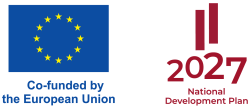Adult education in Latvia is becoming increasingly accessible, with more flexible learning opportunities that better align with labor market needs. However, a significant portion of the population—particularly low-income groups and employees in small enterprises—still face barriers to accessing education. These findings are highlighted in the latest OECD report on global trends in adult education, based on the results of the 2023 Programme for the International Assessment of Adult Competencies (PIAAC).
In Latvia, vocational education significantly improves access to the labor market. Young adults (aged 25–34) with short-cycle tertiary vocational education earn, on average, 74% more than those without an upper secondary qualification—one of the highest margins among OECD countries (the OECD average is 39%). Moreover, the employment rate of vocational secondary school graduates surpasses that of general education graduates. Latvia is also one of only four OECD countries where all vocational secondary education programs include practical workplace training, offering young people the opportunity to acquire hands-on experience in real work environments.
Large companies in Latvia are actively involved in employee training—nearly 30% of employees in such firms participated in training over the past four weeks, the highest rate across OECD countries (the average is 15%). However, the OECD notes that this training often focuses on health and safety compliance rather than on developing productivity-enhancing skills. In contrast, participation in education is significantly lower in small and medium-sized enterprises, where training opportunities are also more limited.
In Latvia, 65% of adult learning takes place during working hours, while 35% occurs outside of work time. This shows that although most training is organized during working hours, Latvia has a comparatively high share of training taking place outside regular work time compared to the OECD average.
Latvian adults highly value non-formal education—more than 80% of participants find it useful for their professional work, and only 6% consider it entirely unhelpful. These figures surpass the OECD average and significantly exceed countries like Japan and South Korea, where only around one-quarter of adults rate training as very useful, often preferring formal education pathways. In contrast, fewer adults in Latvia engage in formal education—only 6% compared to the OECD average of 8%.
To make short courses more effective, modular education programs, micro-credentials, and training that leads to partial qualifications are essential. These approaches allow for more flexible, personalized, and long-term learning pathways.
One overarching trend across OECD countries is the growing importance of digital skills in non-formal adult education. Digital competencies have become one of the most common areas of training, and their relevance continues to grow.
Despite the expansion of learning opportunities, one in four adults still reports facing barriers to participation. The most commonly cited reasons across OECD countries include lack of time, family responsibilities, and financial constraints—especially among women, young adults, and those with higher education levels. In Latvia, however, a more frequently cited barrier is the lack of appealing or sufficiently accessible learning options.
OECD data also confirm that individuals with higher incomes are more likely to participate in training. Latvia shows one of the widest gaps in participation between high- and low-income groups—exceeding 35 percentage points. This means that people in lower income brackets are more than twice as unlikely to engage in learning compared to wealthier individuals, with less than 40% of low-income adults having participated in any form of training. Similar disparities are also observed in Chile and Portugal.
Despite the positive developments, overall adult learning participation remains stagnant or is declining in many countries. On average, only 40% of adults in OECD countries engage in any form of education annually. The most notable declines have been recorded in countries such as South Korea and Israel.
To systematically expand learning opportunities for adults, Latvia’s Ministry of Education and Science is implementing several key initiatives. One such initiative is the Individual Learning Accounts (ILA) project, under which a unified platform STARS has been created. It offers adults a wide range of publicly supported opportunities to acquire digital skills and professional competencies. As of 2024, the STARS platform is also supporting training for 28,000 employed individuals, including 14,000 adults with low educational attainment. This initiative aims to reduce participation barriers and promote skill development in line with labor market demands.
A wide variety of educational programs are available for adults to support flexible, personalized learning pathways that foster career growth and resilience in a rapidly changing job market. These include modular programs, where learning is divided into smaller segments or modules that can be completed step-by-step.




